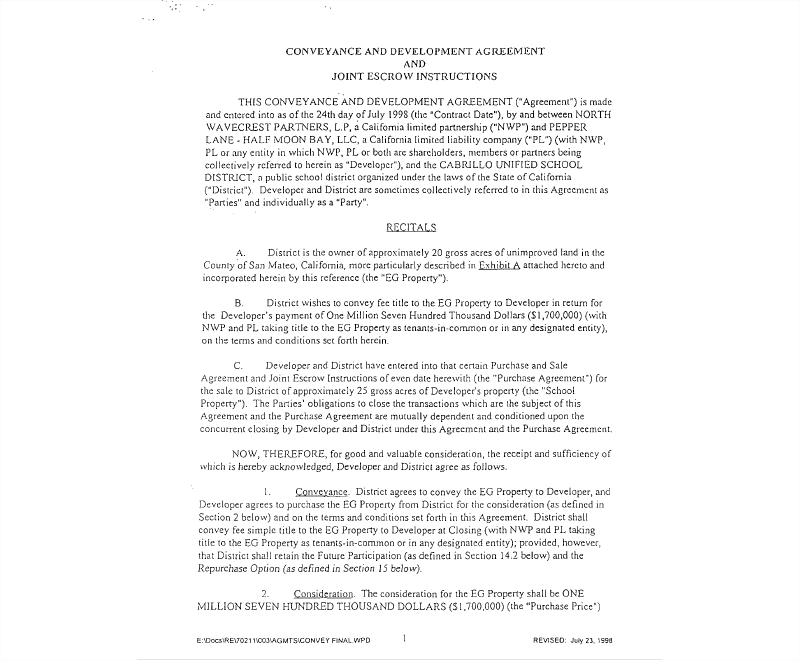

State laws sometimes require that the deed indicate the residence of the grantor by town, city, county, and state. The grantor must be adequately identified by the conveyance, although it is not required that the grantor's name be specifically mentioned. The conveyance must include operative words of grant however, technical terms do not need to be used. courts.Ī deed must describe with reasonable certainty the land that is being conveyed.

Verbal grants of land in Texas have, therefore, been given recognition in U.S. A verbal grant was sufficient to complete the transaction, provided that it was accompanied by a transfer of possession. Under Spanish law, which was in effect at an early date in areas of the western United States, a written deed was not necessary to convey title to land. Historically speaking, a written deed is the instrument used to convey ownership of real property.Ī deed is labeled an instrument of conveyance. Land can only be transferred from one individual to another in the legally prescribed manner. It is no longer required that such an instrument be sealed. A written instrument, which has been signed and delivered, by which one individual, the grantor, conveys title to real property to another individual, the grantee a conveyance of land, tenements, or hereditaments, from one individual to another.Īt Common Law, a deed was an instrument under seal that contained a Covenant or contract delivered by the individual who was to be bound by it to the party to whom it was granted.


 0 kommentar(er)
0 kommentar(er)
